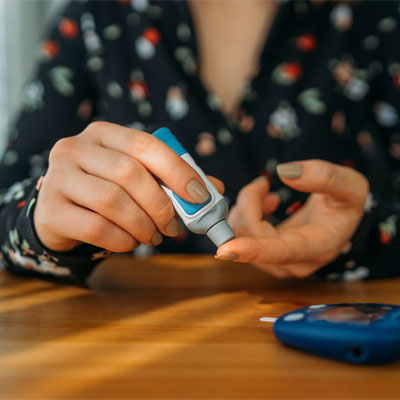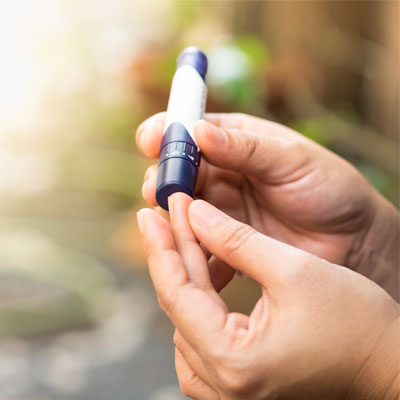Testosterone Therapy and Diabetes
Contents
- Testosterone and Type 1 and Type 2 Diabetes
- Can I Take Testosterone If I Have Diabetes?
- How Does Testosterone Therapy Affect Diabetes?
- Does Testosterone Replacement Help With Diabetes?
- Is Testosterone Therapy Safe for Diabetics
- Can Testosterone Injections Raise Blood Sugar?
- Type 1 Diabetes and Testosterone Therapy
- Can Type 1 Diabetics Take Testosterone Injections?
- Type 2 Diabetes and Testosterone Therapy
- Can Type 2 Diabetics Take Testosterone Injections?
- What Does the Medical Research Say About Testosterone and Diabetes?
Clinical research has shown that there is a definite link between low testosterone and diabetes.
Testosterone is a very critical male hormone. Unfortunately, as men age, testosterone levels drop. This age-related decline of testosterone leaves many men between the ages of 35 and 55 suffering from low testosterone, also known as hypogonadism or, more simply, low testosterone.
For many years now, doctors and medical researchers have known that there is a link between low testosterone and diabetes. There has recently been an overwhelming body of evidence that shows that men suffering from both diabetes and low testosterone often see complete remission of diabetes symptoms after undergoing testosterone a prescribed course of testosterone replacement therapy.
Men who are diagnosed with Low-T are often obese. They tend to be tired, have low metabolisms, and are resistant to the impact of exercise. That could also describe most men with Type 2 diabetes. It should come as no surprise, therefore, that there have been many recent studies that indicate men who have Low-T also have or are at greater risk of developing diabetes.
In fact, according to the Diabetes Association, men with diabetes are nearly twice as likely to suffer from low testosterone as men without diabetes. Furthermore, men who have both diabetes and low testosterone are also at much greater risk of developing heart disease than the general population.
It is still not clear whether there is a causal relationship between diabetes and low-T, or vice versa, but there is increasing evidence of some kind of link between the two conditions.
Testosterone and Type 1 and Type 2 Diabetes

People with type 1 diabetes have a genetic defect or other disease or condition that prevents their body from making enough insulin.
Type 2 diabetes is an acquired form of the disease that results from insulin resistance that builds up over time due to things such as obesity, heart disease, or other health problems.
When we are talking about the relationship between diabetes and testosterone, we are almost always talking about type 2 diabetes. In fact, that is what medical science believes is the link between diabetes and testosterone. Low testosterone seems to decrease the body’s sensitivity to insulin, increasing insulin resistance, which leads to obesity and an increased risk of developing type 2 diabetes.
Can I Take Testosterone If I Have Diabetes?
Not only can you take testosterone if you have diabetes, but you are also encouraged to do so, as studies have shown that men with low testosterone and diabetes see a reduction in the symptoms of both conditions once they have completed a course of testosterone therapy.
Studies have found that in men with type 2 diabetes and hypogonadism, testosterone therapy was able to decrease insulin resistance by 15.2% after six months of therapy and 16.4% after one year. This was just one of many studies that, Therefore, patients with both diabetes and low testosterone levels may benefit from testosterone therapy by relieving the symptoms of low T and by improving overall health and insulin sensitivity.
How Does Testosterone Therapy Affect Diabetes?
When you have low levels of testosterone, you decrease the cell’s sensitivity to the effects of insulin. Instead of using that insulin to improve glucose uptake, insulin and glucose continue to circulate in the bloodstream. The cells do not get the fuel they require.
When we look at testosterone therapy and diabetes, we find that people with Low T who receive treatment improve their insulin sensitivity. That allows for the removal of insulin and blood sugar from the bloodstream. Otherwise, if the cells are insulin resistant, the pancreas will continue to saturate the blood supply with more insulin to try and get the glucose out of the bloodstream.
Does Testosterone Replacement Help With Diabetes?

Prediabetes is a condition where you have higher blood glucose levels than normal and is usually a sign that you are at risk for developing type 2 diabetes. The strongest advice that physicians give to patients with prediabetes is to lose weight. One of the many benefits of testosterone therapy is weight loss and increased lean muscle. This may account for the many studies that have found that testosterone replacement can prevent men with prediabetes from developing type 2 diabetes.
Is Testosterone Therapy Safe for Diabetics
As long as you have received your prescription for testosterone from your doctor and he or she is aware of your diabetes, and you follow your doctor’s instructions, testosterone therapy should be as safe for diabetics as anyone else. Again, not only is testosterone therapy safe for diabetics when used as directed, it is encouraged. The latest research seems to show definitive evidence that Men with type 2 diabetes and low testosterone levels can benefit significantly from testosterone treatment.
Can Testosterone Injections Raise Blood Sugar?
No, there is nothing in the medical record to suggest that testosterone levels can raise blood sugar. Everything points to the opposite being true. The research suggests that testosterone is a metabolic hormone that is vital to insulin sensitivity. Rather than raising sugar in the blood, testosterone is instrumental in helping insulin remove sugar from the bloodstream and get it into the cells where it is needed for energy. Studies show that men with low testosterone are more likely to develop metabolic syndrome. In short-term studies, testosterone replacement improved blood sugar levels and obesity in men with low testosterone.
Type 1 Diabetes and Testosterone Therapy
While we have largely been discussing the impacts of testosterone therapy on men with acquired or type 2 diabetes, there is also evidence that men with type 1 diabetes, who also have low testosterone, could benefit from testosterone therapy. Studies have found that men with type1 diabetes did experience benefits of long-term testosterone therapy by showing improvements in their underlying diseases.
Can Type 1 Diabetics Take Testosterone Injections?
Men with type 1 diabetes, a genetic condition which is not associated with lifestyle factors, can safely use testosterone injections, so long as they are prescribed for them by their doctors. Again, there is evidence that men with both low testosterone and type 1 diabetes can see resolution of both their symptoms of low T and diabetes. At the very least, men with low testosterone and type 1 diabetes will receive the relief of their hypogonadism symptoms. Testosterone shots will not make their type 1 diabetes symptoms any worse as some steroids can, and testosterone injections may actually help lower their blood sugar levels.
Type 2 Diabetes and Testosterone Therapy
There is now clear evidence that low testosterone reduces cellular insulin sensitivity leading to insulin resistance and an increased risk of developing type 2 diabetes. This is why we so often see major improvements from testosterone therapy and diabetes symptoms. Testosterone replacement therapy helps improve the cell’s ability to take in glucose. Anything that helps remove insulin and glucose from the bloodstream is vital to a person’s overall health.
In addition to the direct link between testosterone therapy and lowered insulin resistance, testosterone therapy can also help lower the risk of developing type 2 diabetes by increasing metabolism, reducing inflammation, helping you lose weight, and increasing lean muscle.
Can Type 2 Diabetics Take Testosterone Injections?
Yes, of course, type 2 diabetics can take testosterone injections, as long as they have been properly prescribed for them by a doctor. Again the most current research suggests that long-term testosterone therapy could help men with type 2 diabetes and low testosterone levels lose weight and even put type 2 diabetes into remission.
What Does the Medical Research Say About Testosterone and Diabetes?

One of the latest such studies was presented at the 2018 annual meeting of the European Association for the Study of Diabetes. This landmark study indicated that long-term testosterone therapy can lower the risk of developing diabetes, and in some cases, may even reverse its symptoms.
The research was conducted by Dr. Farid Saad in cooperation with Bayer AG, Berlin, Germany, and colleagues. According to Saad, the study was designed to “determine the effect of long-term testosterone therapy on men with low testosterone production who also had Type 2 diabetes.” There have been numerous previous clinical studies that have shown that testosterone replacement therapy can have beneficial effects in men with Type 2 diabetes and Low-T.
Over 800 such men were put on testosterone therapy and followed over a ten-year period which recently ended.
Using typical double-blind protocols, the researchers found that for a large percentage of those in the group receiving testosterone, their Type 2 Diabetes had “become less severe, while it had worsened in the untreated controls.” Furthermore, those in the testosterone group who had to be on insulin therapy to control their diabetes symptoms were able to reduce their dose significantly, falling from an average 34 to 19.9 units per day. The researchers also observed significant weight loss in the participants in the testosterone group.
An earlier study, conducted in 2016 by the Tulane University School of Medicine, was one of the first to not only suggest that low testosterone may lead to diabetes, but that testosterone therapy, may, in fact, be an effective treatment for diabetes. Dr. Mauvais-Jarvis, the lead researcher on the study, said, “If we can modulate its action without side effects, [testosterone therapy] is a therapeutic avenue for type 2 diabetes….”
A quite recent study, this one from 2020, concluded that “One-third of a cohort of men with type 2 diabetes and hypogonadism who received testosterone undecanoate therapy experienced a sustained remission of their diabetes.”
Now that you understand more about the relationship between low testosterone and diabetes, why don’t you take a minute to contact us and see if testosterone therapy may be right for you.
FAQ
What is Diabetes?
Diabetes is a disease that occurs when your blood glucose, also called "blood sugar," is too high. Blood glucose is your main source of energy. It comes from the food you eat. Insulin is a hormone made by the pancreas. It helps glucose from the food you eat get into your cells to be used for energy. Sometimes your body does not make enough insulin. This allows glucose to build up in the bloodstream, causing diabetes.
What Are the Symptoms of Diabetes?
If not managed, type 1 and type 2 diabetes can lead to symptoms such as:
- urinating frequently
- feeling very thirsty and drinking a lot
- feeling very hungry
- feeling very fatigued
- having blurry vision
- having cuts or sores that don’t heal properly
People with type 1 and type 2 diabetes may also experience irritability, mood changes, and unintentional weight loss.
What Health Problems Can be Caused by Diabetes?
Over time, high blood glucose leads to problems such as
- Heart disease
- Stroke
- Kidney disease
- Eye problems
- Dental problems
- Nerve damage
- Foot problems
What Is the Link Between Testosterone and Diabetes?
One of the many functions of testosterone is that it helps increase the sensitivity of the body’s tissues and cells to insulin, allowing them to absorb circulating blood sugar (glucose) to convert into cellular energy. Low testosterone seems to increase insulin resistance which is the main cause of obesity and type 2 diabetes. Insulin resistance occurs when your body’s ability to respond to insulin is compromised in some way.
Is Testosterone Therapy Used to Treat Diabetes?
No doctor would prescribe testosterone replacement therapy strictly as a treatment for diabetes. However, many studies have shown that men with both diabetes and low testosterone see a reduction in symptoms of both conditions when they take testosterone injections. Also, men at high risk of developing diabetes, who may have low-T along with suffering from "prediabetes," may lower or eliminate the risk of developing full-blown diabetes with testosterone replacement therapy.
- Nelly Pitteloud, MD, Vamsi K. Mootha, MD, Andrew A. Dwyer, BA, Megan Hardin, BA, Hang Lee, PhD, Karl-Fredrik Eriksson, MD, Devjit Tripathy, MD, DM, Maria Yialamas, MD, Leif Groop, MD, PhD, Dariush Elahi, PhD, Frances J. Hayes, MB, BCH, BAO
- Joanne B Farrell, RN, BSN, CDE, Anjali Deshmukh, PharmD, Ali A. Baghaie, PharmD
- Jacob C. Seidell, MD, PhD, Per Björntorp, MD, PhD, Lars Sjöström, MD, Henry Kvist, Rune Sannerstedt, MD
- Line Velling Magnussen
- Aksam Yassin, Ahmad Haider, Karim S. Haider, Monica Caliber, Gheorghe Doros, Farid Saad, W. Timothy Garvey
- Yvette Brazier
- Diabetes Global Community
Relationship Between Testosterone Levels, Insulin Sensitivity, and Mitochondrial Function in Men
Low Testosterone and the Association With Type 2 Diabetes
Visceral fat accumulation in men is positively associated with insulin, glucose, and C-peptide levels, but negatively with testosterone levels
Testosterone therapy of men with type 2 diabetes mellitus – a randomized, double-blinded, placebo-controlled study
Testosterone Therapy in Men With Hypogonadism Prevents Progression From Prediabetes to Type 2 Diabetes: Eight-Year Data From a Registry Study
Could testosterone therapy benefit men with type 2 diabetes?
Testosterone therapy could help control type 2 diabetes in men







